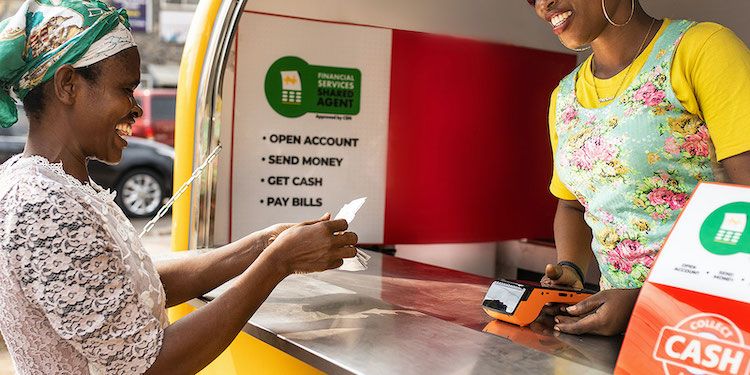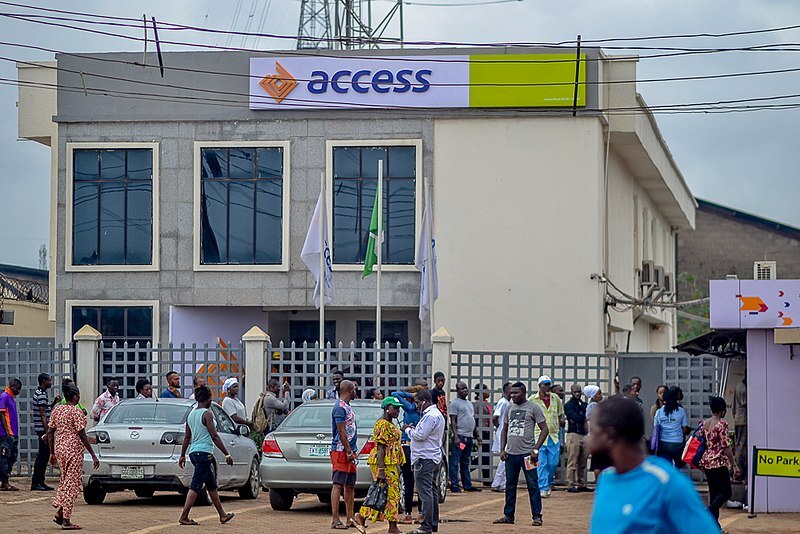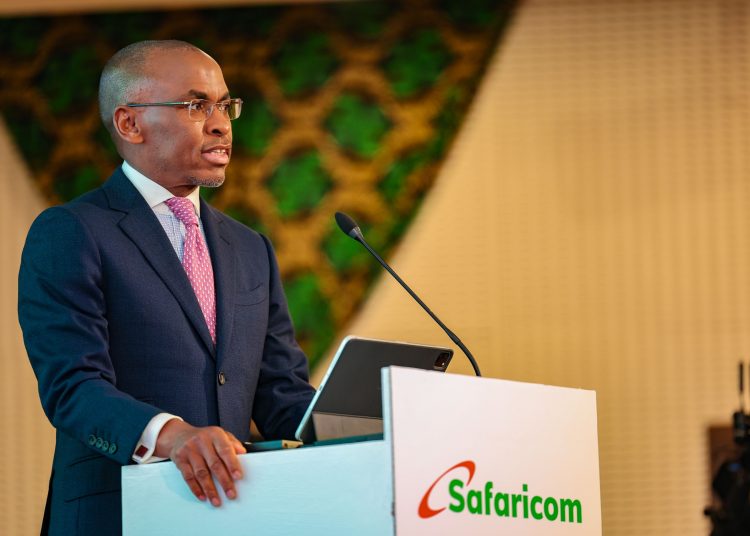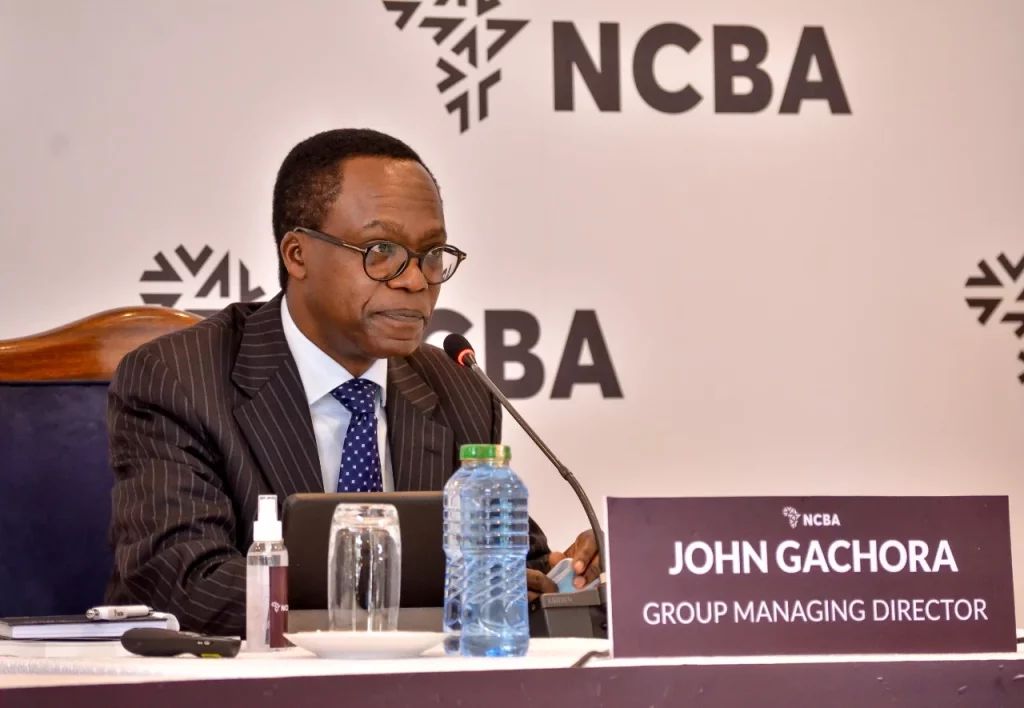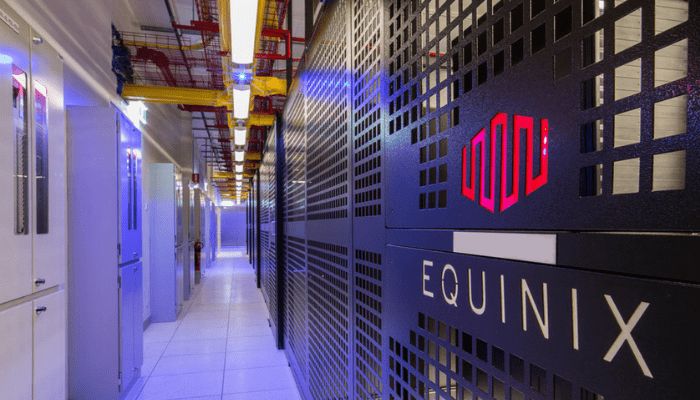With around 8,000 bank branches – most of them in big cities – in a country of 200 million people, formal banking services remain out of the reach of most Nigerians. A quarter of respondents in a 2018 survey by Enhancing Financial Innovation & Access (EFInA) cited distance as one of the factors discouraging them from patronising formal banking institutions.
More Nigerians are now financially included compared to three years ago, however, thanks to the emergence of agency banking and mobile money models in the country. Both have been key to deepening access to financial services in a largely poor mass market.
Agency banking has particularly seen significant growth, driven by a group of fintech startups, including OPay, TeamApt, and Paga, that dominate the landscape as well as big telco players like MTN.
Commercial banks, too, have had to rethink their retail strategies with more focus on agent networks as a distribution channel, rather than the costly branch model. As of last year, two of Nigeria’s biggest banks, Access Bank and FirstBank, had around 59,000 and 100,000 agents, respectively. Both banks plan to further double down on agency banking.
In a conversation with TechCabal, Adesoji Solanke, Director of Frontier/SSA Banks & Fintech Equity Research at Renaissance Capital, talks about agency banking in Nigeria, relevant trends in the industry as well as challenges and opportunities for operators in the space.
Michael: Agency banking: What is it and what is it not?
Adesoji: Agency banking is a model that takes financial services to the last mile using human agent networks or merchants, equipped with point-of-sale (POS) machines. They’re like human ATMs. Essentially, agency banking brings the point at which customers can carry out financial transactions closer to them. While most people in cities like Lagos go to bank branches or ATMs, in most rural areas, people can find an agent much closer than they can a branch or ATM. For instance, Nigeria has about four bank branches and 15 ATMs for every 100,000 adults. But, as it stands, there are over 400 POS machines for the same rate. Agency banking enables customers to access financial services conveniently at the last mile.
Michael: Why is the agency banking model so important in the Nigerian context today?
Adesoji: For a financial institution, using agent networks is the right strategy given the current market conditions, compared to say digital-only or internet banking. The majority of Nigeria’s population remains offline, with mobile phone penetration at about 50% while smartphone penetration is at 15%. In addition, even though a significant number of people use internet banking, small businesses and merchants don’t have digital ways of accepting payments. This means that most people rely on withdrawing cash for transactions. If you operate a digital bank in the country and try to scale outside of the already banked populace, you need to think of an offline strategy like agent networks as part of your proposition. With digital banking, there’s a portion of the Nigerian populace that you can’t reach.
Michael: What factors are necessary for making agency banking successful for financial companies?
Adesoji: In order to make agency banking work, it’s important to fully understand the landscape. One factor that has helped industry growth is the relative ease of becoming an agent. While there are actual full-time banking agents, anybody with a shop can serve as an agent for a bank or a mobile payments company. Many existing stores and informal traders double as agent outlets with POS devices, and they only have to meet a transaction threshold every month.
There’s also the fact that an agent can serve multiple companies simultaneously. For instance, a single agent can have several POS machines from different banks. It’s up to the financial institution to introduce incentives to attract and retain agents – in addition to competitive pricing and a reliable platform that provides several services that’d make the agent use their device more. If the POS machine breaks down, how quickly can they get the problem solved? How many services does your platform provide beyond just cashing in and out? Those factors matter.
Michael: Can you speak more about the competitive pricing point?
Adesoji: Sure. Whenever an agent charges a fee on a transaction, there’s a sharing agreement between the agent and the super-agent, who is like the boss, on how the gains are shared. There’s a “price war” going on in the agency banking space in Nigeria, with OPay and TeamApt being the most active players in the war. By this, I mean the share of fees that go back to super-agents has been reduced significantly while agents get more, as super agents look to retain their agents. The agent is king. For every ₦100 charged, the agents’ margins on that have been growing, particularly when they use TeamApt (MoniePoint) or OPay machines. Meanwhile, some other players like Paga and Esettlements have decided not to actively participate in the price war. Their strategy is to focus on the quality of service, making sure they address softer dynamics that are also important to the agents beyond just the gains on transactions. It’s the economics behind the service, and companies have to get it right at scale.
Michael: What are the gains of agency banking to all the parties involved?
Adesoji: For financial institutions, there are more transactions and they’re able to offer more solutions at the last mile. FirstBank has the largest agent footprint of all the banks in Nigeria, and last year recorded $16.2 billion in agency banking transaction value. For agents, the fees are the major benefits, and when those agents are merchants, there’s increased foot traffic to the store of the merchant. Increasingly, with the price war going on, the profit margins of agents have been growing.
Banked and unbanked Nigerians also benefit significantly from the wide networks of banking agents. For instance, having an agent close by, especially in rural areas, makes it easier for the average person to consider opening a bank account. Access Bank added 4.46 million new bank customers through its agents over the last two years. People without bank accounts also sometimes use agent accounts to receive and send money.
Michael: How about challenges and risks associated with agency banking in the country?
Adesoji: There are a number of risks. Agents have to deal with unstable internet connectivity, especially in rural areas where broadband access is limited. There’s also the insecurity problem, although, in most areas, some agents have informal domestic security arrangements. The other potential risk is the switching dynamics. By regulation in Nigeria, POS transactions have to be routed through the Nigeria Inter-Bank Settlement Systems (NIBSS), which is the initial switching point before it is passed on to other switches in the country, like Interswitch. With NIBSS being a choke point, any inefficiency in the network will affect the rest of the ecosystem and the quality of service offered to customers.
Michael: What role has regulation played in Nigeria’s agency banking boom?
Adesoji: Prior to 2018, the Nigerian government introduced a number of regulations for agency banking, but the most significant initiative came in 2019 in the form of the Shared Agent Network Expansion Facility (SANEF). It was set up by the Central Bank of Nigeria (CBN), supported by Deposit Money Banks (DMBs), NIBSS, and Licensed Mobile Money Operators/Shared Agents. SANEF has recruited, trained, and supported more people to become agents while also providing some funding to companies to expand agent networks in underserved Nigerian cities.
Michael: Do you see agency banking as a silver bullet to all current difficulties with access to financial services in Nigeria?
Adesoji: I wouldn’t call it that. It solves problems, for sure, but does it solve all the problems? No. It’s part of an ecosystem of solutions driving financial inclusion and cash to digital evolution.
Michael: Are there untapped opportunities within the agency banking space?
Adesoji: The low-hanging fruit has been captured, which is serving the already banked people at the last mile. In a lot of states where there’s a high concentration of branches in urban areas, agents have done a great job with last-mile penetration. Maybe there’s another 15% or 20% opportunity to drive that by pushing more agents into other parts of the country. But it’s maturing.
I think the next stage of evolution for agency banking in Nigeria is really driving financial inclusion. How do you leverage the agent networks to go even deeper where customers do not have bank accounts? Several agent networks have been rolled out since SANEF got involved in 2019, but the majority of people transacting on that network are already banked. That’s the next step in the SANEF network – figuring out how to leverage the networks to solve problems for the unbanked.
Another thing is, what else can agents offer beyond cash-in-cash-out? How do you add more financial services to the POS machine that make it a more valuable tool? Can you leverage it to facilitate lending, insurance, investment products? When you go to Kenya or Egypt, for instance, agents do more than just deposits and withdrawals. They facilitate loan repayment, credit card payments, registration for different services, etc. Nigeria has done really well over the past two years in terms of how agent networks and transaction values have grown. But there’s an opportunity for value-added services, particularly as cash in cash-out fees to the super agent potentially come under more pressure going forward.
There’s also a significant opportunity in the offline merchant payment acceptance space, particularly with SMEs and MSMEs. A lot of merchants in Nigeria still don’t have a way of accepting digital payments in-store, whether it’s POS machines to accept cards or QR codes.
The market is evolving. In the short term, we’ll see another step in the evolution of agent networks. Players will need to figure out what else they can do with the last-mile distribution networks that they’ve built and also think critically about the relevance of their networks as cash gets increasingly digitized and sector dynamics evolve.
Michael: What are your thoughts on the further growth of agency banking in the country?
Adesoji: Some of the technology that agency networks use today is a bit clunky. POS machines are a fraction of the cost of rolling out bank branches and ATMs but even more technological advancements will ensure that the cost and type of POS machines used are significantly cheaper than what is available in the market today and we’re already seeing smartphones being used as acceptance devices. Technological advancements are happening very quickly. The cost of devices and the internet are getting cheaper, and there’s a lot of capital coming into the venture space in Africa, which means that founders have more capacity to test new ideas. I think the next two to three years will be very interesting.









